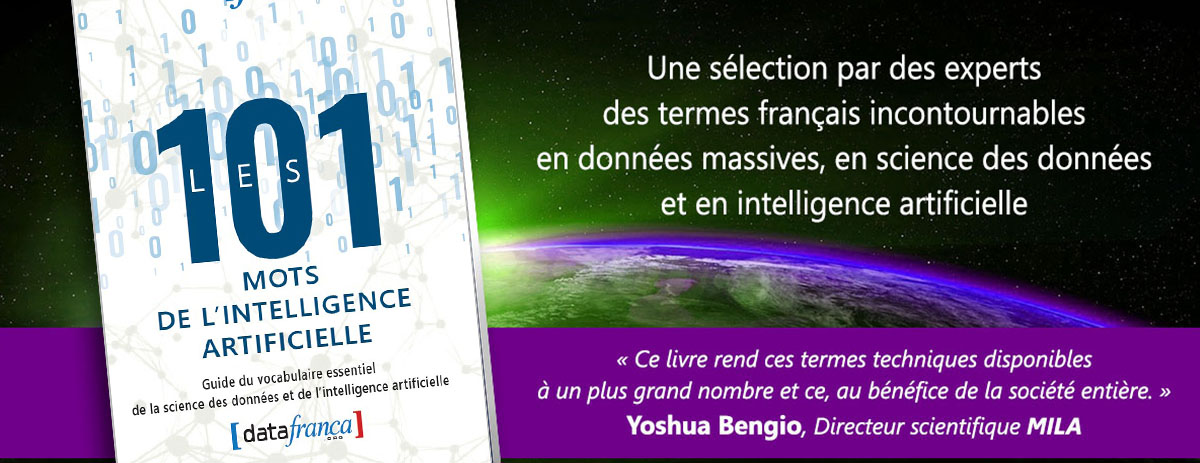« Sciences cognitives » : différence entre les versions
Aucun résumé des modifications |
Aucun résumé des modifications |
||
| Ligne 11 : | Ligne 11 : | ||
== Termes privilégiés == | == Termes privilégiés == | ||
=== | === Science cognitive=== | ||
== Anglais == | == Anglais == | ||
Version du 28 février 2018 à 14:58
Domaine
Définition
Domaine pluridisciplinaire de recherche sur les mécanismes et le fonctionnement des processus mentaux. La science cognitive cherche à décrire les mécanismes de la pensée, de la conscience et de l'intelligence humaine, en vue notamment de les reproduire dans des systèmes informatiques. Cette science regroupe plusieurs disciplines telles que la psychologie, la linguistique, les neurosciences ou encore l'informatique.
Termes privilégiés
Science cognitive
Anglais
Cognitive science
Cognitive science is the interdisciplinary, scientific study of the mind and its processes.[2] It examines the nature, the tasks, and the functions of cognition (in a broad sense). Cognitive scientists study intelligence and behavior, with a focus on how nervous systems represent, process, and transform information. Mental faculties of concern to cognitive scientists include language, perception, memory, attention, reasoning, and emotion; to understand these faculties, cognitive scientists borrow from fields such as linguistics, psychology, artificial intelligence, philosophy, neuroscience, and anthropology.[3] The typical analysis of cognitive science spans many levels of organization, from learning and decision to logic and planning; from neural circuitry to modular brain organization. The fundamental concept of cognitive science is that "thinking can best be understood in terms of representational structures in the mind and computational procedures that operate on those structures."[3]
Contributeurs: Arianne Arel, Claude Coulombe, Imane Meziani, Jacques Barolet, Espanol: JSZ, Patrick Drouin, wiki, Robert Meloche










